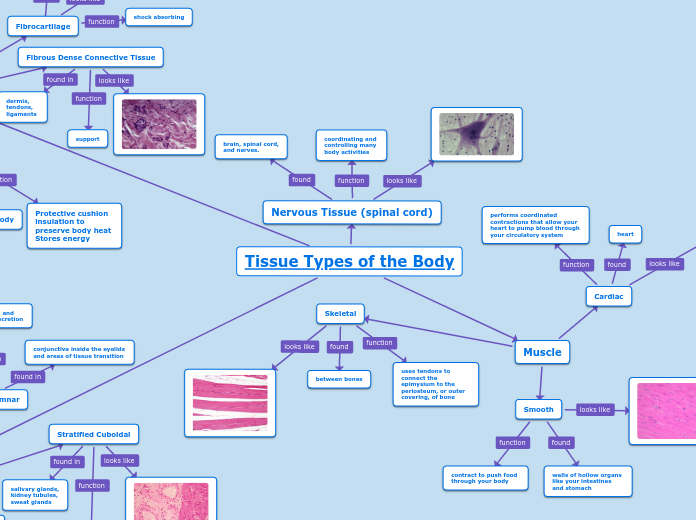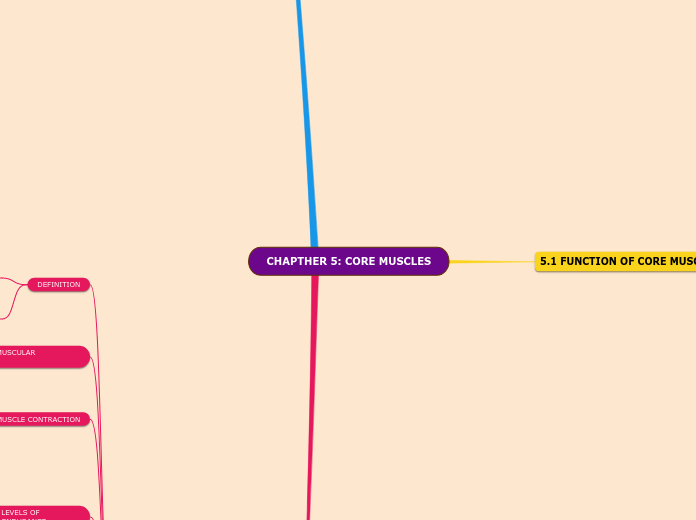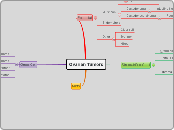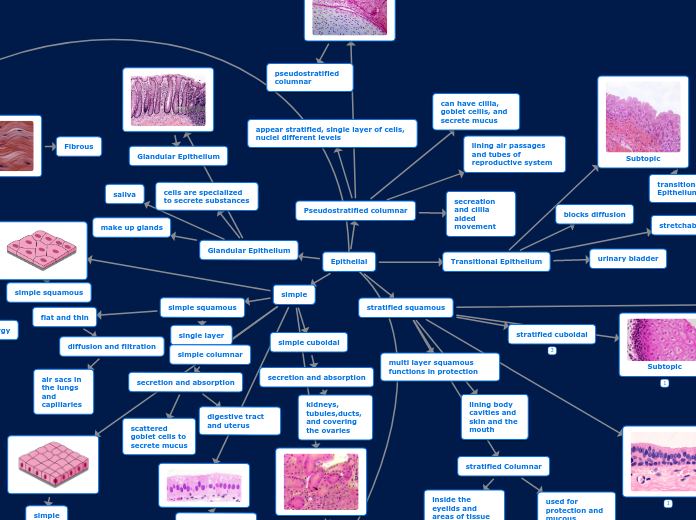a Sarah Chapman 5 éve
752
Tissue Types of the Body
The human body comprises various tissue types, each with specific roles essential for maintaining body functions. Connective tissues, including areolar, hyaline cartilage, bone, elastic cartilage, blood, and adipose tissues, provide structural support, protection, and storage functions.
Megnyitás
Tissue Types of the Body Nervous Tissue (spinal cord) coordinating and controlling many body activities brain, spinal cord, and nerves. Muscle Smooth walls of hollow organs like your intestines and stomach contract to push food through your body Cardiac heart performs coordinated contractions that allow your heart to pump blood through your circulatory system Skeletal uses tendons to connect the epimysium to the periosteum, or outer covering, of bone between bones Connective Hyaline cartilage covers ends of joints, nose and respiratory passages, serves as padding helps hold the body together Elastic cartilage External Ear and Larynx shaping the folds which efficiently channel sound waves towards the inner ear Blood Tissue transport of oxygen and carbon dioxide blood vessels Adipose Tissue (fat) Protective cushion
insulation to preserve body heat
Stores energy Bone Tissue (Osseous) locomotion, support and protection skeleton Fibrocartilage between vertebrae shock absorbing Loose Connective Tissue or Areolar Tissue Binds underlying organs to skin and to each other throughout body Fibrous Dense Connective Tissue support dermis, tendons, ligaments Epithelial Stratified Columnar conjunctiva inside the eyelids and areas of tissue transition protection and mucous secretion Stratified Cuboidal secretion and protection salivary glands, kidney tubules, sweat glands Glandular Epithelium saliva specialized to secrete substances
They make up the glands Transitional Epithelium Blocks diffusion urinary bladder Pseudostratified Columnar Secretion and cilia-aided movement lining air passages and tubes of the reproductive system Stratified Squamous lining body cavities; skin and mouth protection Simple Columnar digestive tract and uterus ecretion and absorption Simple Cuboidal kidneys tubules, ducts and covering the ovaries Secretion and absorption Simple Squamous diffusion and filtration capillaries, alveoli, glomeruli, and other tissues where rapid diffusion is required flat/thin









